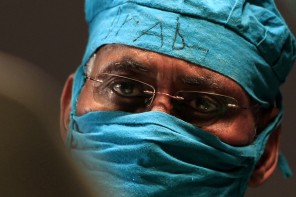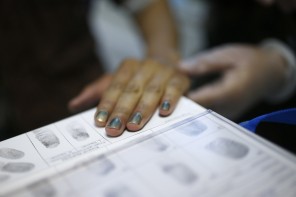The Pulitzer Center on Crisis Reporting is putting its fantastic team behind a great new project, supporting four African journalists to cover reproductive health in their home countries. There’s also a trip to a conference and Dakar in the mix!
The deadline is coming up fast, but the application is quick and easy. If you are a good candidate, or you know one, do apply.
With that, the details, which are also here. Get in by Friday! And use that time difference to your advantage…
The Pulitzer Center on Crisis Reporting seeks applications from African journalists to participate in a collaborative reporting project on reproductive health in Africa.
Based on a model developed to cover water and sanitation in West Africa, this collaboration will partner four African journalists and one journalist with strong ties to leading international news organizations (currently under recruitment) who will serve as project leader. Together they will produce a body of reporting focused on reproductive health that will be distributed in African and international outlets.
Background: Reproductive health is at the core of social, economic and human development-now more than ever as the global population reaches 7 billion. High population growth is one of the most important factors contributing to economic, environmental, social, and political strain. According to the World Health Organization, more than 200 million women lack access to effective contraceptives, and fertility rates for most of Africa are double the rate of the world as a whole. Each year in sub-Saharan Africa there are 14 million unintended pregnancies, posing major health risks to women and their children, including death from complications during childbirth. Men have crucial roles and responsibilities due to their decision-making powers in reproductive health matters.
This collaboration will improve the quality of the reporting on reproductive health and bring the voices of African journalists working to communicate the systemic crises affecting their countries to an international audience.Grant Description: The selected journalists and Pulitzer Center staff will travel to Dakar, Senegal to attend the International Conference on Family Planning (Nov. 28-Dec. 3, 2011). There they will attend conference sessions and press briefings, refine the reporting plan for their individual projects and participate in a multimedia training workshop led by the lead journalist and Pulitzer Center staff.
In January/February 2012 the lead journalist and Pulitzer Center staff will travel to report alongside the African journalists in their respective countries. Individual projects will contribute to a collection of reports from the region to be published in the journalists’ outlets and in US-based and international news media. Additionally, the work will be featured on a special Pulitzer Center web platform.
All expenses at the conference and during reporting in Africa will be covered by the Pulitzer Center.Eligibility: These grants are open to English-speaking African journalists, writers, photographers, radio producers or television news producers; staff journalists as well as freelancers who live and work in the region and seek to report from their home country on reproductive health. Applicants should be able to demonstrate experience reporting on reproductive health issues. Women are especially encouraged to apply, as are journalists with expertise in a variety of media.
Deadline: 11:59 pm GMT -4, October 14, 2011. Selected journalists will be announced within two weeks of the application period closing.
How to Apply: Applications should be submitted to health@pulitzercenter.org with “First and Last Name – Country – Africa Population” in the subject line. Questions should be directed to Jake Naughton at the above address. Applications must be received in English.
Applications must include all of the following:
A 250-word proposal describing a specific story on issues of reproductive health (in the text of the email)
A brief description of your knowledge of or experience reporting on issues of reproductive health (in the text of the email)
A brief description of experience with video, photography, radio and web media (in the text of the email); experience in these media is not a requirement for the grant
Two references with contact information with 1-2 sentences describing how each knows you (in the text of the email)
A letter from your editor or supervisor that gives permission to participate in the Family Planning Conference (November 28 – December 3, 2011) in Dakar, Senegal and to travel with the lead journalist for one week in January/February 2012, and that signals a strong commitment to publish or broadcast your work on the topic (as attachment)
Three examples of recent reporting (as links or attachments)
Curriculum Vitae (as attachment)


